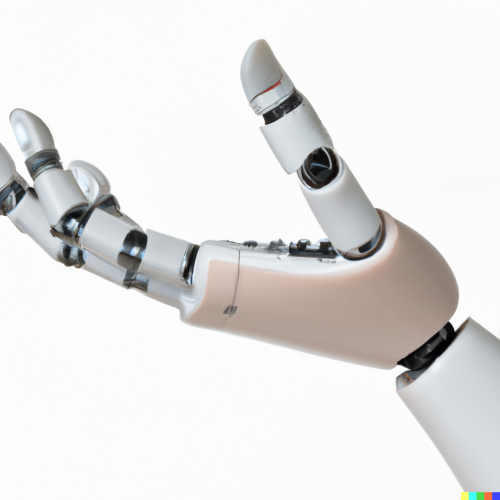Sign Language Robot Hand [M.Sc. Thesis/Int. CPS Project]
Abstract
Human-Robot Interaction using Sign Language is a project that aims to revolutionize the way we communicate with machines. With the increasing use of robots in our daily lives, it is important to create a more natural and intuitive way for humans to communicate with them.
Sign language is a unique and powerful form of communication that is widely used by the deaf and hard-of-hearing community. By incorporating sign language into robot interaction, we can create a more inclusive and accessible technology for everyone.
Moreover, sign language will provide a new and innovative way to interact with robots, making it possible for people to control and communicate with them in a way that is both non-verbal and non-intrusive.
Note: This project is also offered as Internship position.

Thesis Description
The implementation of sign language in human-robot interaction will not only improve the user experience but will also advance the field of robotics and artificial intelligence. This project has the potential to bring about a new era of human-robot interaction, where machines and humans can communicate in a more natural and human-like way. Therefore, the Human-Robot Interaction using Sign Language project is a crucial step toward creating a more accessible and user-friendly technology for everyone.
This thesis will encompass three crucial elements. The first part will focus on recognizing human gestures in sign language through the development of deep learning methods utilizing a camera. The second part will involve programming a robotic hand to translate text back into gestures. Finally, the third part will bring together the first two components to create a seamless human-robot interaction framework using sign language.
Qualifications
- Currently pursuing a Bachelor’s or Master’s degree in Computer Science, Electrical Engineering, Mechanical Engineering, Mathematics or related fields.
- Strong programming skills in Python
- Experience with deep learning frameworks such as PyTorch or TensorFlow.
- Experience working with robotics hardware
- Knowledge of computer vision and image processing techniques
- Good written and verbal communication skills in English.
Interested?
If this project sounds like fun to you, please contact Fotios Lygerakis by email at fotios.lygerakis@unileoben.ac.at or simple visit us at our chair in the Metallurgie building, 1st floor.